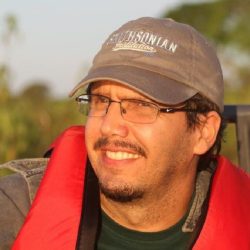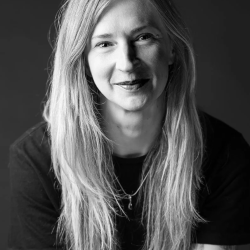Plenary Speakers
The Pathways Europe team is thrilled to announce the following speakers for Pathways Europe 2026.

Silvio Marchini
Science & Strategy Coordinator
Smithsonian’s National Zoo and Conservation Biology Institute
Throughout his career, Silvio has been a mediator helping to build bridges: bridges between ecological and social sciences, researchers and decision-makers, readers and authors, those who want to learn and those who can teach, people and nature, to understand and improve life – wildlife and human life.
Strategic planning, theory of change, systems thinking, decision-making, partnership building, transdisciplinary collaboration, qualitative and quantitative conservation social research, and monitoring, evaluation & learning are examples of his fields of interest.
He is the founder, consultant, and facilitator of ‘Plan4Coex Workshops & Courses’. Science & Strategy Coordinator of Pontes Pantaneiras Coalition (Smithsonian Institution/IPÊ – Instituto de Pesquisas Ecológicas/Embrapa Pantanal/University College London); a member of IUCN SSC Human-Wildlife Conflict & Coexistence Specialist Group; faculty at NEPAM|University of Campinas; member of Instituto Pró-Carnívoros (IPC); and co-founder of Escola da Amazônia (Whitley Award 2007).

trina moyles
Wildlife Conservation Author, Photographer, and Filmmaker
Trina Moyles is a Yukon-based author, journalist, and creative producer. Her work is inspired by rural communities and relationships with land, wildlife, food security, and climate change.
She is the author of two award-winning books, including Women Who Dig: Farming, Feminism, and the Fight to the Feed the World (2018) and Lookout: Love, Solitude, and Searching for Wildfire in the Boreal Forest (2021).
Moyles’s articles and essays have been published extensively in North America, including The Globe and Mail, Alberta Views, Maisonneuve, The Walrus, Hakai Magazine, Calgary Herald, and Canadian Geographic.
She received a Bachelor of Arts Degree in Cultural Anthropology from MacEwan University in 2010, and her MFA in Creative Writing from the University of British Columbia.
In 2022, she was recognized by the Lieutenant Governor of Alberta Arts Awards as an Emerging Artist in Alberta, one of the most prestigious literary honours in the province.
In 2023, Moyles relocated to Whitehorse, Yukon Territory, where she resides today. In June 2024, Moyles received the Yukon Advanced Artist Award, which is allowing her to embark upon researching and writing her first novel.
